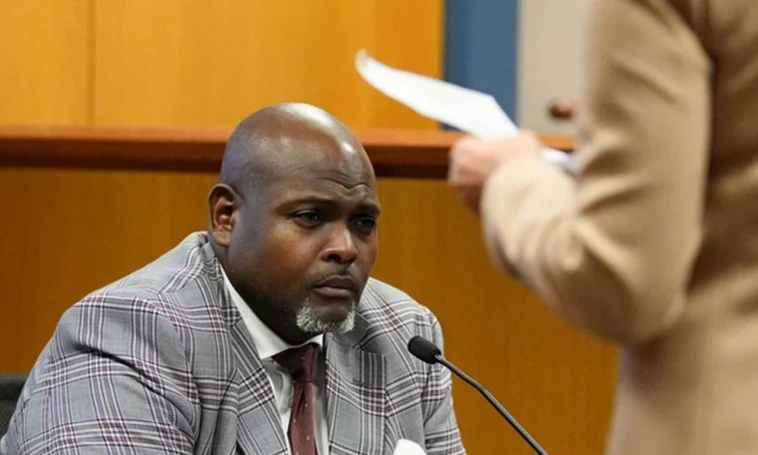Terrance Bradley as a Key witness in Willid’ case testifies.The legal drama surrounding former law firm partner Terrance Bradley’s testimony regarding the personal relationship between Fulton County District Attorney Fani Willis and special prosecutor Nathan Wade unfolds against a backdrop of allegations, contradictions, and potential conflicts of interest.
At the heart of the matter lies the integrity of legal proceedings, particularly those involving high-profile cases such as the prosecution of former President Donald Trump for alleged election interference.
Bradley’s testimony, delivered under oath in Fulton County Superior Court, marked a pivotal moment in the ongoing proceedings. Initially, Bradley attempted to invoke attorney-client privilege to avoid certain questions, but Judge Scott McAfee ultimately ruled that his privilege assertions were not valid, thus compelling Bradley to testify.
Throughout his testimony, Bradley’s recollection of details and timelines surrounding conversations with Wade regarding Wade’s romantic relationship with Willis remained elusive.
Despite evidence such as text messages indicating Bradley’s beliefs about the timing of the relationship, Bradley frequently cited an inability to recall key information. This inconsistency raised doubts about the transparency of the proceedings and fuelled speculation regarding the nature of Bradley’s involvement and potential biases.
The defense, led by attorney Ashleigh Merchant, strategically challenged Bradley’s testimony, highlighting discrepancies between his prior statements and his responses under oath.
“Do you tell lies about your friends? About a case of national importance?” Rice asked.
The revelation of text messages suggesting Bradley’s earlier acknowledgment of the relationship’s existence before Wade’s employment with Willis added a layer of complexity to the case. Bradley’s subsequent dismissal of those statements as mere speculation further muddied the waters, leaving observers questioning the credibility of his testimony.
Attorney Richard Rice’s pointed inquiry into Bradley’s integrity further underscored the contentious nature of the proceedings. Rice’s question about whether Bradley habitually disseminated falsehoods about his acquaintances, particularly in cases of national significance, elicited a vague response from Bradley. His admission that he “could have” engaged in such behavior added fuel to the defense’s efforts to cast doubt on Bradley’s reliability as a witness.1
The revelation of Bradley’s strained relationship with Wade, once characterized by a friendship spanning over a decade, added another dimension to the unfolding narrative.
Bradley’s assertion that he had only discussed Wade’s relationship with Willis on one occasion further raised questions about the depth of his involvement and potential motivations behind his testimony.
Judge McAfee’s decision to conduct an “in-camera” meeting with Bradley to assess the validity of his privilege claims reflected a commitment to upholding the integrity of the legal process.
McAfee’s determination that Bradley’s testimony was not shielded by privilege paved the way for a crucial phase of the proceedings, culminating in Bradley’s testimony before the court.
The broader implications of the case extend beyond the individuals involved, resonating with themes of transparency, accountability, and the sanctity of legal proceedings. Allegations of impropriety and conflicts of interest, particularly in cases of national significance, underscore the need for stringent adherence to ethical standards and procedural integrity.
Fani Willis’ unexpected and confrontational testimony further intensified the courtroom drama, casting a spotlight on the personal dynamics at play within the legal sphere. Her contentious exchanges with attorneys, coupled with the unconventional revelation of allegedly wearing her dress backward, added an element of spectacle to the proceedings, underscoring the high stakes involved.



